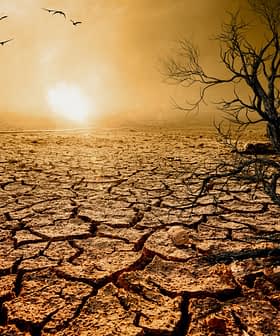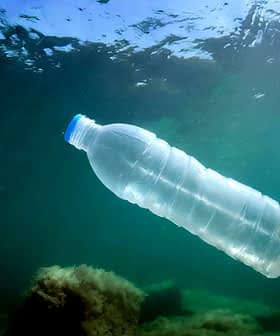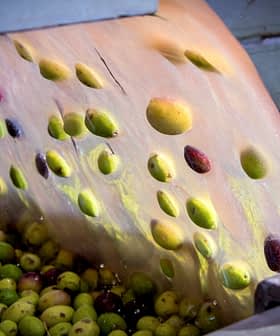Nearly Half of the Farmland in Europe Faces Erosion Factors
Soil assessment and conservation measures are increasingly important due to climate change. Good farming practices could reduce erosion caused by tillage, water and wind.
 Andalusia, Spain
Andalusia, Spain A new report published in Nature Sustainability shows that almost half of European farmland face at least one driver of soil erosion, with water displacement being the most significant form. The study, conducted by the European Union Joint Research Center (JRC), found that tillage, harvesting operations, and erosion have significant impacts on arable land, highlighting the importance of soil conservation and monitoring to mitigate these effects.
The cumulative impact of tillage, harvesting operations and water and wind erosion have been evaluated for the first time at a European scale to determine the consequences of these factors on arable land.
A new report published in Nature Sustainability shows that almost half of European farmland face at least one driver of soil erosion.
According to the European Union Joint Research Center (JRC), which authored the study, there are about 100 million hectares of arable land in the E.U.
See Also:Study Sheds Light on Environmental Impact of Global Food Production“Our estimates show that 43 million hectares are vulnerable to a single driver of erosion, 15.6 million hectares to two drivers and 0.81 million hectares to three or more drivers,” the researchers wrote. “About 3.2 million hectares of arable land are vulnerable to the possible interaction of increased flood, drought, water and wind erosion.”
The study also found that soil displacement by water is the most significant form of erosion, representing 51 percent of the total displacement and involving 57 percent of the total area.
“Soil displacement due to water erosion in the E.U. is estimated to be equal to a 1‑centimeter displacement of soil annually from an area twice the size of Belgium,” the researchers wrote.
The research also identified tillage as the second-largest driver of soil displacement, accounting for 36 percent of the whole. Wind erosion and crop harvesting came in right after, with 10 and 2.7 percent, respectively.
Understanding and assessing soil erosion is crucial to the future of food production and the environment, as the soil is the foundation of agriculture and ecosystems.
According to the JRC, changes in soil quality “affect the provision of food, water supply and regulation, and carbon sequestration. Good soil is a major microbial gene pool from which we extract biomedical resources; lower soil quality puts this process in question.”
Soil erosion results in the loss of agricultural productivity, reduces soil stability, changes soil structure and reduces soil biology capacity and water retention.
Erosion also results in the loss of soil nutrients and impairs “all major functions of soil, not only its productivity,” the researchers noted.
The JRC researchers said the study constitutes a set of predictions that should serve as the basis for developing “an efficient stratified monitoring network and informing targeted mitigation strategies under the Common Agricultural Policy 2023 – 2027.”
The Common Agricultural Policy is an E.U. subsidy program designed to “support farmers and improve agricultural productivity.”
To counteract soil erosion, the researchers recommended reducing tillage intensity and increasing vegetative cover on arable land. “These actions are beneficial to the functional agro-biodiversity of the farming system,” they wrote.
Following these recommendations and other good farming practices might reduce tillage erosion by 27 percent, water erosion by 20 percent and wind erosion by 9 percent.
The researchers said soil assessment and conservation measures would become increasingly important due to climate change.
The JRC said the current soil erosion assessment is the first of its kind and is considered a basis for developing a comprehensive monitoring system of soil health on the continent.
“Europe is moving toward a more vigorous hydrological cycle which will exacerbate the erosion impact… future geography and rates of erosion may be substantially altered by climate change,” they wrote.
“The road to the sustainable, carbon-neutral and biodiversity-friendly system of agriculture advocated for in the E.U. Green Deal goes through a thematic strategy for soil protection from multiple concurrent erosion processes,” the researchers added.
The JRC said there are currently only a handful of soil erosion survey programs worldwide, notably the United States National Cooperative survey and the Chinese National General Survey Program on Soil and Water Conservation.
The new research will be part of the “E.U. soil strategy for 2030” enacted last year to cope with land degradation.
Share this article









